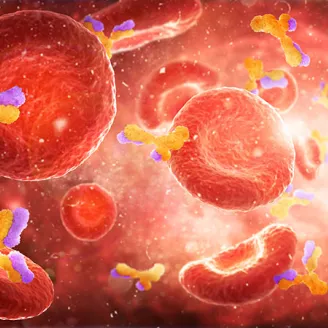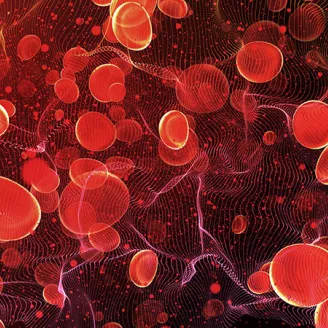 Biologics , which are derived from living organisms instead of via chemical synthesis, represent some of the most advanced and targeted treatments available in medicine today. A critical, cutting-edge area of medicine, they protect public health from infectious diseases and provide sophisticated, life-changing treatments. They offer hope for lasting improvements in health and quality of life. And they increasingly offer cures for conditions once thought incurable.
Biologics , which are derived from living organisms instead of via chemical synthesis, represent some of the most advanced and targeted treatments available in medicine today. A critical, cutting-edge area of medicine, they protect public health from infectious diseases and provide sophisticated, life-changing treatments. They offer hope for lasting improvements in health and quality of life. And they increasingly offer cures for conditions once thought incurable.
VILS has been playing a key role in bringing some of these discoveries out of the lab and into patients’ lives. They include discoveries in:
VILS works with research teams on their projects in all three of these areas, always keeping up with what is emerging from labs and with the latest engineering techniques for bringing the latest discoveries to people’s lives. Our teams’ understanding of the scientific breakthroughs taking place and the latest engineering solutions mean that they understand the challenges our clients face in bringing their discoveries to the world. More than suppliers, VILS teams discuss these challenges as peers.
As a result, we have at times designed and built the first facilities of their kind in the world. For example, we engineered the world’s first GMP-validated mRNA facility in 2015 – almost five years before mRNA vaccines were developed against Covid-19. Two years later, we built the world’s first GMP viral vector facility.
Derived from living organisms, biologics include complex molecules like proteins, antibodies, and cell-based therapies that have distinct advantages over traditional, chemically synthesized drugs. The precision of some biologics allows them to treat complex conditions such as cancer, autoimmune disorders, and genetic diseases, often with fewer side effects and better outcomes than conventional therapies.
Production and regulatory challenges
However, their complexity, as well as their origins in living organisms rather than in chemical synthesis, make scale-up, quality control and supply/distribution chains especially challenging. Highly sophisticated manufacturing facilities are required.
The biologics industry is also highly regulated due to the risks, complexity and impacts on human health. Regulatory approval involves even more focus on process than it does for chemically synthesized therapies. That is partly because these products are grown, created by living organisms, not assembled into identical molecules from identical components.
Regulatory bodies like the EMA (European Medicines Agency) and FDA (Food and Drug Administration) have special frameworks such as the FDA’s Biologics License Application (BLA) for the approval of these products. For example, these frameworks demand comprehensive details about the production process, including the source of raw materials, cell lines or organisms used, cultivation processes, purification methods, and quality control measures. This ensures that the product can be consistently manufactured and meets required quality standards.
Our starting point: Your process and business needs
For all these reasons, our scientists and engineers build around you, your process, your business needs and your regulatory environment as a starting point, not with a predetermined facility that we alter to fit. When it comes to emerging technologies like monoclonal antibodies, plasma-derived therapies and vaccines, there is no other practical way forward. Each therapy is unique as is each process used to create it.
We also understand the business issues involved, which is why our concepts and designs have often proved useful to our clients’ business cases when seeking funding.
As we work together, you will find that we are process, manufacturing, and R&D experts with hands-on experience and a head for business. Many of them have worked in your field. The multi-disciplinary team we tailor for you will include specialists who not only understand your language, they speak it.
Learn more about the VILS approach, which starts from your process and business needs.
Learn more about our project references.

Success Story: Exothera: From concept to large-scale viral vector production facility



